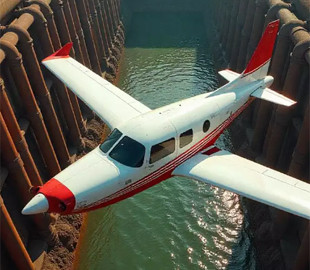
Technology for the production of sustainable fuel can reduce greenhouse gas emissions in the aviation industry by up to 70%, the developers claim.
American scientists from the Argonne National Laboratory have developed a technology for the production of aviation biofuel from wastewater from breweries and dairy farms. The method converts wastewater saturated with organic compounds into volatile fatty acids that can be upgraded to sustainable aviation fuel (SAF).
SAF fuel, made from renewable materials such as biomass and agricultural waste, can reduce the carbon footprint of air travel. But it is expensive and difficult to produce. Researchers say they have created a technology to produce biofuel that can compete with conventional fuel in terms of price.
200% Deposit Bonus up to €3,000 180% First Deposit Bonus up to $20,000Instead of relying on more traditional resources such as fat, oil and lubricants, the scientists used carbon-rich wastewater from breweries and dairy farms as a raw material. Wastewater processing is associated with large carbon emissions, and the method makes it possible to combine water purification with fuel production.
Researchers have developed a method of anaerobic digestion with methane capture to capture carbon from wastewater and convert it into a mixture of volatile acids – lactic and oily.
At the first stage, the resulting mixture was dominated by lactic acid, which is not suitable for the production of aviation fuel. To solve this problem, the scientists used electrochemical separation to improve MAAD technology using a membrane to shift the balance in favor of butyric acid.
Using experimental data, the scientists evaluated three possible ways to convert waste to SAF and compared them. with conventional jet fuel derived from fossil fuels. The analysis showed that the transition to biofuels would reduce the carbon footprint of the aviation industry by 70%, while at the same time, due to the use of unnecessary raw materials and economical production, the price would be comparable to conventional jet fuel.

